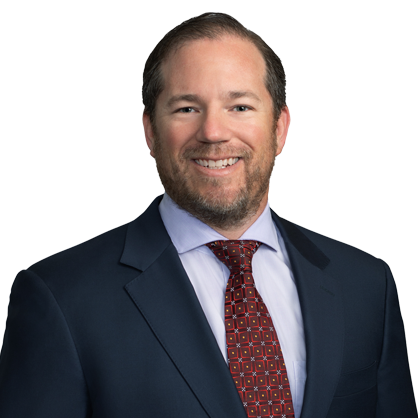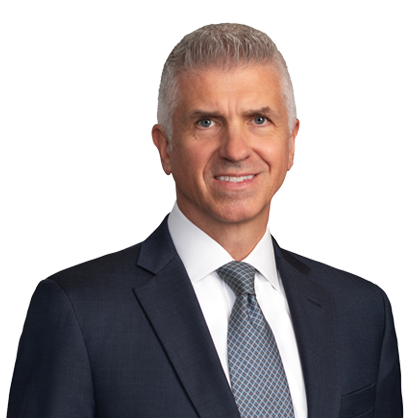Insights
Thought Leadership
As Fund Managers Await Regulations, Key Questions Surface with Qualified Opportunity Funds
As part of the Tax Cuts and Jobs Act, signed into law by President Trump on December 22, 2017, Congress introduced new tax incentives designed to encourage long-term investments in low-income American communities. States were eligible to nominate certain economically distressed areas to the Treasury Department to be designated as "qualified opportunity zones." Investors in qualified opportunity zones, facilitated by investing in "qualified opportunity funds," can achieve a range of tax benefits. For an in-depth overview of these tax benefits, see our earlier publication here.
Private fund managers have expressed an understandable eagerness to create qualified opportunity funds, but many tax advisors have realized that the rules governing qualified opportunity zones (under new Section 1400Z of the Internal Revenue Code) provide an imperfect roadmap. The rules contain a litany of uncertainties and ambiguities that leave fund managers and investors to navigate at their own peril. The Internal Revenue Service is expected to issue regulations that will attempt to clear up many of these issues, but the timing and substance of those regulations remain uncertain, making it difficult for fund managers and investors to sit on the sideline waiting for answers. As of September 2018, proposed rules are under review by the Office of Management and Budget's Office of Information and Regulatory Affairs.
Fund managers and potential investors are already facing a running clock to take advantage of one of the most significant tax benefits of the qualified opportunity program. Investors must invest in a qualified opportunity fund by December 31, 2019, in order to be eligible for the cumulative 15 percent basis step-up with respect to the invested gains. Complicating this timing element further is that for those investors seeking to invest in a committed capital fund, there is an open question about when an investor's capital commitment is deemed to be "invested" for purposes of Section 1400Z. Accordingly, investors who have already realized gains or may realize significant gains in the near future must ensure that the terms of any private investment fund in which they are seeking to invest not only adequately address the asset tests for the fund's own compliance with Section 1400Z, but also permit the investors to fully invest their gains within the required timeframe set out by Section 1400Z. An investor who commits to a private investment fund, but is not deemed to have invested within the required timeframe, may be faced with not only paying taxes on gains that the investor expected to have been deferred pursuant to the new tax incentives under Section 1400Z, but may also require additional capital to fund capital calls if the investor was relying on its full pre-tax gain for fulfilling its commitment to the fund.
This article highlights some of the unanswered questions that fund managers who are interested in launching qualified opportunity funds will need to contend with until the Treasury Department addresses the issues in its anticipated regulations. The following list is not intended to be comprehensive or exhaustive but rather to illustrate that a number of key issues regarding investing in opportunity zone funds remain open.
- How does a business's need for cash balances, cash reserves, and working capital accounts coexist with the 90 percent asset test[1], which characterizes cash as a "bad" asset?
- At some point, most qualified opportunity zone businesses and qualified opportunity funds will require cash reserves in excess of 10 percent to satisfy other Section 1400Z requirements or to simply operate their business with sufficient working capital. Companies, such as real estate investment businesses, may also be required under applicable laws or financing agreements to carry certain cash reserves at all times. While the arbitrary measuring dates under the 90 percent asset test provide private investment funds and businesses with opportunities to plan ahead, we anticipate that the IRS will provide more flexibility while still protecting from potential abuse.
- How is the 90 percent test applied to a private investment fund in its initial, partial tax year if the fund was created between July 1 and December 31, given that the first measurement date under the test is six months after the start of the tax year?
- Given that this language comes directly from Section 1400Z, the IRS may not have the authority to interpret this test any other way than to require testing six months after formation, but perhaps a taxpayer in this situation will only have to measure its assets on December 31 of that initial year.
- In determining whether a business constitutes a qualified opportunity zone business, how does the "substantially all" test differ from the 90 percent asset test applied throughout the rest of Section 1400Z? What does "substantially all" mean?
- We anticipate that the IRS will address what constitutes "substantially all" in the upcoming regulations. Without more clarity, it will be extremely difficult for a business attempting to qualify as a qualified opportunity zone business to determine how much tangible property it will need to acquire, which will also be a sensitive decision given that the company cannot carry large cash reserves to fund expenditures.
- In a fund with capital call mechanics, at what point is an investment considered to be made by investors seeking to defer recognition of gain?[2] Can investors defer recognition of gain in an amount equal to the full amount of their capital commitment upon making the commitment, or must investors actually wait until capital is contributed to consider it invested?
- The conservative approach is to assume that cash is not invested until capital is contributed, not merely committed. This is a complicated outcome, however, because investors that wish to defer a gain by investing it in a qualified opportunity fund will pressure fund managers to make capital calls quickly, since the investor must "invest" within 180 days of generating the gain to qualify for the deferral. Fund managers could face a "catch-22 scenario" because the fund may not be able to make a premature capital call and put the cash in reserves without violating the 90 percent asset test and, even if they are able to do so, such a capital call would drag down the private investment fund's returns.
- How are assets measured for purposes of the 90 percent asset test? If the metric is fair market value, does the private investment fund need to pay for biannual appraisals of all of its assets? If the metric is adjusted basis, does this create a disincentive for qualified opportunity zone businesses to purchase depreciable assets, which would run contrary to the program's goal to encourage capital expenditures?
- The simplest and perhaps most effective approach would be to measure assets by their initial cost basis. Measuring fair market value would require costly and time-consuming valuations, and it is unclear how often those valuations would need to take place. Measuring with adjusted basis would create a disincentive to purchase depreciable property, which runs contrary to legislative intent. Initial cash basis will be simpler to track and measure without concerns about inadvertently falling below 90 percent on a given day.
- Does a qualified opportunity fund itself need to be a qualified opportunity zone business? If not, could a qualified opportunity fund make direct investments in the "black listed" businesses[3] that a qualified opportunity zone business cannot invest in?
- This seems like an illogical outcome, but the IRS may not have the authority to read Section 1400Z any differently, and this issue may not garner the same attention as some of the other issues discussed herein.
- How is real estate characterized under the 50 percent gross income test?
- A qualified opportunity zone business must derive 50 percent or more of its gross income from the active conduct of a qualified business within a qualified opportunity zone. We anticipate that the regulations will clarify whether certain real estate activities are "active" or "passive" for purposes of this test, especially given that real estate may be one of the most prevalent types of qualified opportunity zone investments.
- Can investors defer ordinary gain, or does the gain have to be capital?
- The House and Senate bills used the term "capital gain," as does the title of Section 1400Z, but the language within Section 1400Z did not include the word "capital" before the word "gain." Investors will benefit more from deferring tax at ordinary income rates versus lower capital gains rates, so a favorable answer from the IRS would presumably lead to more investments in qualified opportunity zones. Based on legislative history, however, we suspect that only capital gains will qualify.
- Can investors defer capital gains allocated to them by a partnership?
- Section 1400Z stipulates that the investor must sell or exchange an appreciated asset, so we doubt that an asset sold by a partnership qualifies. This outcome would also present a challenge in determining when the gain was generated for purposes of the 180-day clock—i.e., would the clock start running when the partnership sold the asset? If so, the partner might not know how much gain will be allocated to it until the partnership files its Form 1065 and issues K-1s, which would likely occur more than 180 days from the date of sale. The regulations may touch on this topic, but without further guidance we assume that gains allocated from a partnership are ineligible.
There are many unanswered questions posed by Section 1400Z with respect to investments in qualified opportunity zone funds. Those considering organizing or investing in entities that intend to certify as qualified opportunity funds would be well served by consulting with knowledgeable legal counsel prior to organizing or investing in qualified opportunity funds.
Should you have any questions concerning this legislation or qualified opportunity zones in general, please contact any of the authors of this alert or any members of the Day Pitney Investment Management and Private Funds group or Tax group.
[1] Under the 90 percent asset test of Section 1400Z, the assets of a qualified opportunity fund must be comprised of at least 90 percent "qualified opportunity property," to which cash does not qualify.
[2] Under Section 1400Z, investors may defer capital gains that would otherwise be recognized in that taxable year by investing such gains in qualified opportunity funds.
[3] These businesses include private or commercial golf courses, country clubs, massage parlors, hot tub facilities, suntan facilities, racetrack or other facilities used for gambling, or any store the principal business of which is the sale of alcoholic beverages for consumption off premises.




